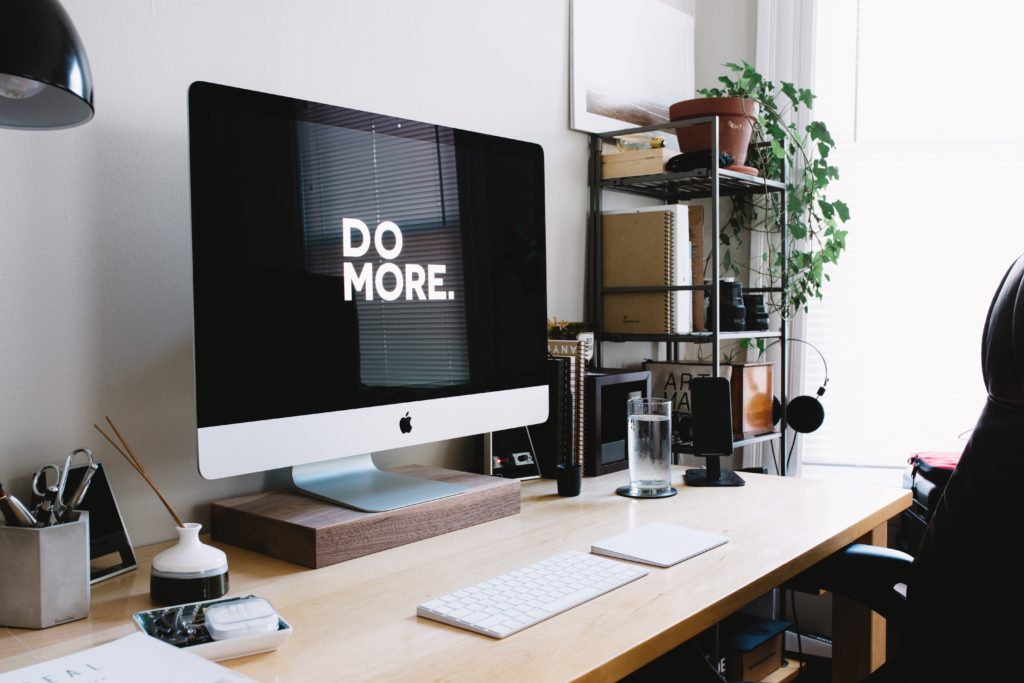
30 Nov Starting Small is Better Than Nothing at All: 11 simple sustainability tips for small businesses
Written by Prabjit Chohan-Patel
The laundry list of issues encountered by businesses large and small isn’t just long. It is infinite. Additional challenges imposed by external forces contribute to the reality that running one’s own business is a never-ending test of resilience and perseverance. Over the years, some challenges have turned out to be flash in the pan ‘buzzword issues’ (remember the here-one-minute-gone-the-next doomsday panic over Y2K preparation?). Meanwhile others are longer lasting or indeed permanent, such as the 2018 EU-wide implementation of General Data Protection Regulation (GDPR) causing upheaval to companies and forever changing individuals’ and consumers’ web-based browsing and transactions.
Hot on the heels of GDPR came another issue (to be fair, decades in the making): sustainability.
When it comes to the key challenges facing businesses in the last few years, sustainability is an indisputable frontrunner and one that is here to stay.
A far-reaching and unquantifiable topic, sustainability has spawned its own unique vocabulary. Corporate Social Responsibility (CSR) refers to sustainability-focused strategies employed by companies to ensure that they operate ethically. Environmental, Social and Governance (ESG) reporting refers to the criteria used to measure a company’s overall sustainability. Greenwashing describes the act of companies engaging in sustainability-based practices purely for PR purposes rather than genuine motives. On and on it goes; it is wide-ranging, complex and at times, daunting.
Larger established businesses usually have a strong artillery of financial and personnel resources to help them meet CSR and ESG objectives. Small businesses, solo entrepreneurs and those launching a new business, however, are not usually bound by strict sustainability reporting and auditing requirements. But from an ethical standpoint, many business owners seek to incorporate sustainable initiatives into their operations. But where to start? For these same individuals, addressing sustainability can feel like an intimidating minefield.
If this sounds familiar and you are a business owner unsure of how to go about implementing sustainability in a manageable way, help is at hand! We’ve put together a clear 11 point list of suggestions to help your business start down its own path to sustainability.

1. Conduct an audit of where your business is now on the sustainability scale
Begin by assessing your current business practices to identify areas where sustainability improvements can be made (eg. energy usage, waste management, using eco-friendly materials in your business).
2. Set clear goals
Next establish specific, measurable and achievable sustainability goals for your business. Keep in mind: clear goals will guide your efforts.
3. Employ the 3 R’s
Implement a waste reduction strategy along the principles of Reduce, Reuse, Recycle (regardless of whether you have done the above audit or goal-setting). Minimise single-use items, promote recycling within your workspace, and explore opportunities for composting.
4. Look at Energy Efficiency
Assess your energy consumption and explore ways to improve efficiency. This could include using energy-efficient appliances, incorporating renewable energy sources, and readdressing your current lighting and heating systems.

5. Encourage a Greener Office Culture
Seemingly obvious but worth emphasising: foster a sustainable work environment by implementing regular eco-friendly office practices. Promote a culture of digital communication to reduce paper usage, implement energy-efficient lighting and create a recycling program within your workspace.
6. Involve your employees!
In line with the previous tip, engage your employees in the drive to operate sustainably. Encourage their ideas, provide training on sustainable practices (and consider rewarding eco-friendly behaviours). As a SHE member and sustainability expert highlights below, a collective effort can lead to more significant and lasting changes.
7. Source Responsibly
Choose suppliers and partners that align with sustainability values. Consider the environmental and social impact of the various entities in your supply chain. Research local and sustainable options to reduce the carbon footprint associated with transportation.
8. Promote Sustainable Products/Services
If applicable to your line of business, consider offering products or services that are environmentally friendly or have a positive social impact. Note, highlighting these offerings in your marketing efforts can attract customers who actively seek out businesses and brands that prioritise sustainability.


We asked Tammy Fenech, owner of sustainability consultancy, Cosie Studio to share some simple philosophies on how individuals and small businesses can get started. Echoing the ethos that nobody can do everything but everybody can do something, Tammy presented these at an impactful SHE member workshop and also during the recent ‘Break Fellowship’ programme in Spain.
“We don’t have to engage in grand heroic actions to participate in change. Small acts when multiplied by millions of people can transform the world,” Tammy Fenech, Cosie Studio..
9. Identify your personal priorities.
Sustainability is a huge subject, spanning environmental, social and cultural topics that can be overwhelming. So, it’s crucial to first connect with what is most important to you within these topics. Is it the treatment of animals, social injustices, water, agricultural practices or waste, for example? By understanding where your heart lies, you will be significantly more engaged in driving your sustainable plan. Otherwise, it can quickly become disheartening and – no pun intended – and an unsustainable effort.
10. Understand where the biggest impact lies in your industry.
Do some research on your industry and identify where the biggest impacts lie within it. Then consider which of your own priorities are most relevant to your industry and see if there is space for any kind of alignment. For example, the fashion and food industry are notorious for creating a lot of waste. The wellness and mental health spaces are known for being less accessible to low income families. Once you are able to match personal priorities to industry relevance, you can identify a reasonable starting point.
11. Start small, make incremental changes and be open to learning along the way.
It is common for business owners to strive for perfection, feeling that they must do everything at once because otherwise, this means they can’t do anything at all. But the reality is that sustainability is an ongoing process that involves constant change. So actually, achieving a perfect state is impossible and is simply setting yourself up for failure. Instead, it is a journey that requires openness to learning at every step of the way. Start small. Start from wherever you are. And the rest will follow.
Start small. Start from wherever you are. And the rest will follow.


Sorry, the comment form is closed at this time.